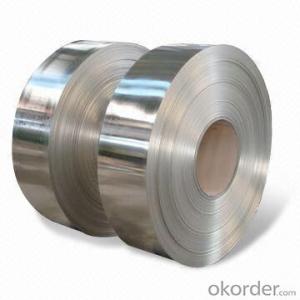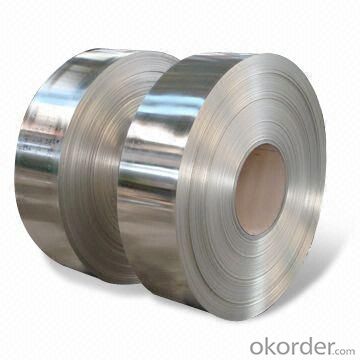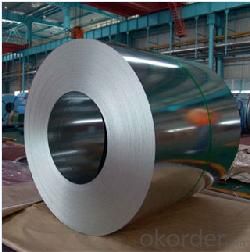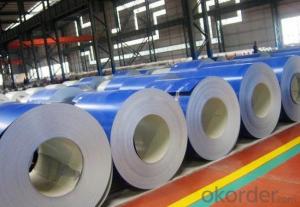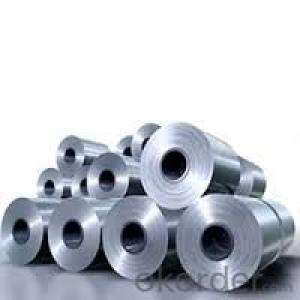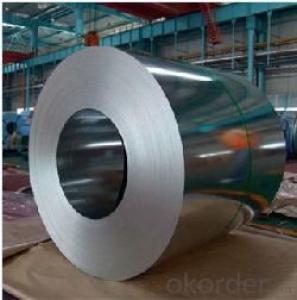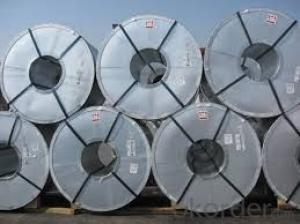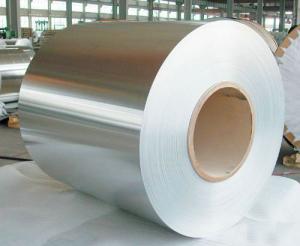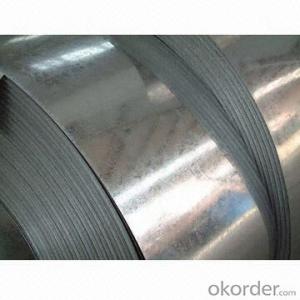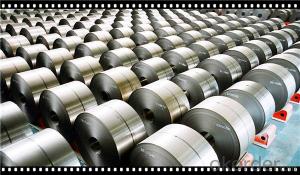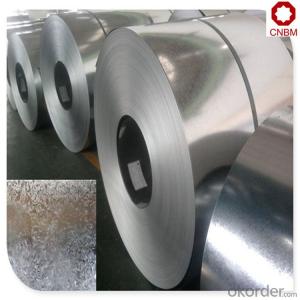Hot dipped galvanized steel coils z275 z400
- Loading Port:
- Shanghai
- Payment Terms:
- TT OR LC
- Min Order Qty:
- 25 m.t.
- Supply Capability:
- 10000 m.t./month
OKorder Service Pledge
OKorder Financial Service
You Might Also Like
Quick Details
| Standard: | ASTM, GB, JIS | Grade: | SGCC. SGCH. DX51D+Z. JIS G3302 | Thickness: | 0.15mm-5.0mm |
| Place of Origin: | China (Mainland) | Brand Name: | CNBM | Type: | Steel Coil |
| Technique: | Cold Rolled | Surface Treatment: | Galvanized | Application: | Roofing sheet and PPGI Base and Building Materials |
| Special Use: | High-strength Steel Plate | Width: | 600mm-1250mm | Length: | Customized |
Packaging & Delivery
| Packaging Details: | Export Packing |
| Delivery Detail: | 30 Days |
Galvanized Steel Coil
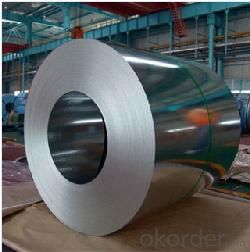
Specifications:
Thickness: 0.13mm TCT up to 5.0mm TCT.
Width: 600mm up to 1250mm.
Zinc Coating: 40-450G/M2.
Chromated, Dry, Skin-passed, Tension Level, Shining. Oiled or Unoiled.
Regular Spangle, minimum Spangle, Large Spangle, Zero Spangle.
Temper: Full Hard (85-95 HRB; G550). Commercial Quality (50-75 HRB; G350).
Coil Weight: 3-6 MT.
Coil ID: 508mm or 610mm.
Shipment: By Bulk or By 20GP Container.
Waterproof Standard Export Packing.
Payment Terms: by T/T or L/C at Sight.
Delivery: 30 Days.
FAQ
We have organized several common questions for our clients,may help you sincerely:
1)How to guarantee the quality of the products?
We have established the international advanced quality management system,every link from raw material to final product we have strict quality test;We resolutely put an end to unqualified products flowing into the market. At the same time, we will provide necessary follow-up service assurance.
2)How long can we receive the product after purchase?
In the purchase of product within 20-25 days, we will arrange the factory delivery as soon as possible. The pacific time of receiving is related to the state and position of customers. Commonly 15 to 30 days can be served.
3)Syringes are CE,FDA approved. And we supplied main nations in the world.
- Q: What are the main factors that affect the corrosion resistance of steel coils?
- The main factors that affect the corrosion resistance of steel coils include the composition of the steel, the presence of impurities, the surface finish, the environmental conditions, and the protective coatings applied to the steel.
- Q: How are steel coils used in the production of roofing systems?
- Steel coils are used in the production of roofing systems in various ways. Firstly, the steel coils are unrolled and fed into a machine where they are cut to the desired length for the roofing panels. These coils are often made of galvanized steel, which is coated with a layer of zinc to protect against rust and corrosion. Once the coils are cut, they are then passed through a roll-forming machine. This machine shapes the steel into the required profile for the roofing panels. The shape of the panels can vary depending on the design and functionality of the roofing system. After the steel is formed, it may undergo further processes such as embossing or stamping to add texture or patterns to the panels. This helps to enhance the aesthetics of the roofing system and provide a unique look. The formed and processed steel panels are then coated with additional protective layers or finishes, such as paint or polymer coatings. These coatings further enhance the durability of the roofing system and provide resistance against weather elements, UV rays, and corrosion. The final step in the production of roofing systems involves the installation of the steel panels on the roof. The panels are typically fastened to the roof structure using screws or nails. The interlocking design of the panels ensures a secure and watertight installation, providing protection against leaks and moisture infiltration. Overall, steel coils play a crucial role in the production of roofing systems by providing a durable and long-lasting material that can withstand harsh environmental conditions. The versatility of steel allows for various design options and customization, making it a popular choice for roofing applications.
- Q: What are the advantages of using galvanized steel coils?
- There are several advantages to using galvanized steel coils. Firstly, galvanized steel is highly resistant to corrosion, which means it can withstand exposure to moisture and other harsh environmental conditions without rusting. This makes it a durable and long-lasting material for various applications. Secondly, galvanized steel coils have a protective zinc coating that acts as a barrier against damage and provides excellent structural strength. Additionally, galvanized steel coils are versatile and can be easily formed, welded, and painted, making them suitable for a wide range of industries and projects.
- Q: How do steel coils contribute to corrosion resistance in products?
- Steel coils contribute to corrosion resistance in products through a combination of factors. Firstly, steel coils are often made from stainless steel, which contains a high amount of chromium. Chromium forms a protective oxide layer on the surface of the steel, known as a passive film, which acts as a barrier against corrosion. This passive film is self-healing, meaning that if it gets damaged or scratched, it can regenerate itself, ensuring continued protection against corrosion. Additionally, steel coils undergo a process called galvanization, where a layer of zinc is applied to the surface of the steel. This zinc layer acts as a sacrificial anode, meaning that it will corrode preferentially to the steel. This sacrificial corrosion protects the steel underneath, effectively preventing rust and other forms of corrosion from developing. Moreover, steel coils can be coated with various protective coatings, such as epoxy or polyurethane, to further enhance their corrosion resistance. These coatings provide an additional physical barrier that prevents moisture, chemicals, and other corrosive elements from reaching the steel surface. Lastly, steel coils can be manufactured with specific alloying elements, such as nickel or molybdenum, which further improve their resistance to corrosion. These alloying elements enhance the strength and durability of the steel, making it better able to withstand corrosive environments. Overall, steel coils contribute to corrosion resistance in products by utilizing stainless steel, galvanization, protective coatings, and alloying elements. By implementing these measures, steel coils ensure that products maintain their structural integrity and appearance over time, even in harsh and corrosive conditions.
- Q: What are the dimensions of steel coils used in the construction materials industry?
- The dimensions of steel coils used in the construction materials industry can vary depending on the specific application and requirements. However, common dimensions for steel coils in this industry range from 0.5mm to 3mm in thickness and 600mm to 2000mm in width. The length of steel coils can vary, but it is typically between 1000mm to 6000mm.
- Q: What are the common uses of stainless steel coils?
- Stainless steel coils are commonly used in various industries such as automotive, construction, manufacturing, and food processing. They are utilized for making a wide range of products including kitchen appliances, metal containers, piping systems, heat exchangers, and architectural components. The high corrosion resistance, durability, and aesthetic appeal of stainless steel make it an ideal material for these applications.
- Q: I have a set of Ben Hogan Apex Plus Forged Irons, how can i figure out if the shafts are steel or graphite?
- Most steel shafts are stepped, meaning there will be a series of ridges that run down the lengeth of the shaft every few inches. Also, take a piece of metal and tap the shaft with it. If it makes a ping type of sound, its metal. If it makes a clunk sound, its graphite. Or, look out the window and ask the first person you see walking by. Unless they are younger that 10 years old, they should be able to tell you pretty easily.
- Q: What is the process of galvanizing steel coils?
- The process of galvanizing steel coils involves immersing them in a bath of molten zinc to create a protective coating. The coils are first cleaned and then passed through a series of chemical baths to prepare the surface for galvanization. Afterward, they are dipped into the molten zinc, which bonds to the steel to form a corrosion-resistant layer. Once coated, the coils are cooled, inspected, and prepared for shipment or further processing.
- Q: Not sure if stainless steel is actually sealable but what's the best way to clean a brushed stainless steel appliance to not get so many finger prints...etc. I have stainless steel wipes that I used on another appliance and they don't work so great.
- Straight white vinegar on a clean white cloth does an amazing job on all my appliances. Makes the kitchen smell great to.
- Q: What are the common uses of galvanized steel coils?
- Galvanized steel coils are commonly used in various industries such as construction, automotive, and manufacturing. They are primarily used for making metal roofs, walls, and fences due to their corrosion-resistant properties. Additionally, galvanized steel coils are utilized in the production of air conditioning ducts, electrical appliances, and agricultural equipment.
Send your message to us
Hot dipped galvanized steel coils z275 z400
- Loading Port:
- Shanghai
- Payment Terms:
- TT OR LC
- Min Order Qty:
- 25 m.t.
- Supply Capability:
- 10000 m.t./month
OKorder Service Pledge
OKorder Financial Service
Similar products
Hot products
Hot Searches
Related keywords
